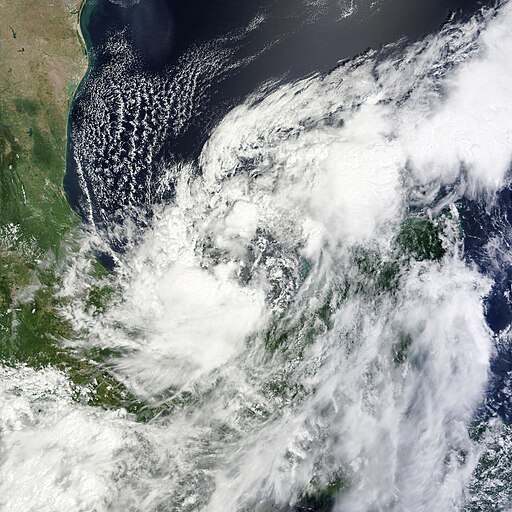 I consulted several sources for weather-related information last night before I went to bed (e.g., local TV news, the Weather Channel, the FEMA app on my phone). You see, I was bracing for a direct hit from Hurricane Nate. I was told that conditions would deteriorate rapidly between about 1:00 and 3:00 AM. I wish I had saved the text from some of the tropical storm warnings distributed by the various federal agencies that monitor these storms to show you how dire they were. The danger to life and property was described in terms that made it sound all but certain that everything I owned would be destroyed and that I'd be lucky to live through it. I thought this was strange considering I live about 60 miles North of where the storm was supposed to make landfall. The best word I can think of to characterize the language used in these warnings would have to be "apocalyptic."
I consulted several sources for weather-related information last night before I went to bed (e.g., local TV news, the Weather Channel, the FEMA app on my phone). You see, I was bracing for a direct hit from Hurricane Nate. I was told that conditions would deteriorate rapidly between about 1:00 and 3:00 AM. I wish I had saved the text from some of the tropical storm warnings distributed by the various federal agencies that monitor these storms to show you how dire they were. The danger to life and property was described in terms that made it sound all but certain that everything I owned would be destroyed and that I'd be lucky to live through it. I thought this was strange considering I live about 60 miles North of where the storm was supposed to make landfall. The best word I can think of to characterize the language used in these warnings would have to be "apocalyptic."I understand that some of the weather reports we see on TV are over-hyped because they are competing for ratings; however, I expect better from FEMA, NOAA, NWS, etc. At the same time, I recognize what they are up against: complacency. If they don't make every storm sound like it will kill us all, many people will just ignore the warnings. That really could place lives in jeopardy. The problem with this sort of thing, though, is that people are less likely to believe the next round of dire warnings when the last round turned out to be completely overblown. I think this is a problem.
Don't get me wrong. I'm not complaining that I'm still alive this morning. I'm also not complaining that my home was not damaged or that my neighborhood seems to have experienced nothing worse than the sort of rain and wind that accompanies almost every thunderstorm. I'm happy about all of this. And yes, I am well aware that many people who live closer to where Nate made landfall did experience a significant impact. My concern is that the massive hype we've been seeing for the past couple days around Hurricane Nate will be remembered by my neighbors as yet another failed prediction and that this will make them less likely to heed the warnings next time. When this happens over and over again, the public becomes increasingly skeptical about what they are told.
I think that the pre-Nate hype was much worse than normal because of the devastating hurricanes that have been in the news recently. I know a few people who usually aren't rattled by storm warnings but still braved the crowds last night to buy every goddamn loaf of bread in the area. I get it. With the constant news coverage of the effects of these other storms, it makes sense that some would freak out or even resort to superstition. Still, it occurs to me that those tasked with informing us about weather-related threats would do well to calibrate the wording they use to fit the actual threat. The alternative is that people are going to lose confidence in them and take their warnings less seriously.